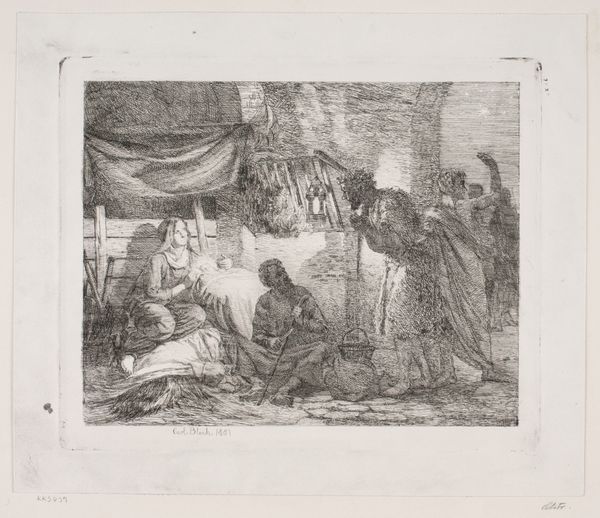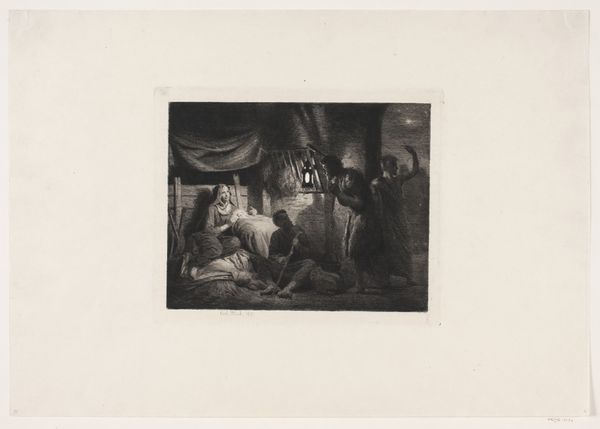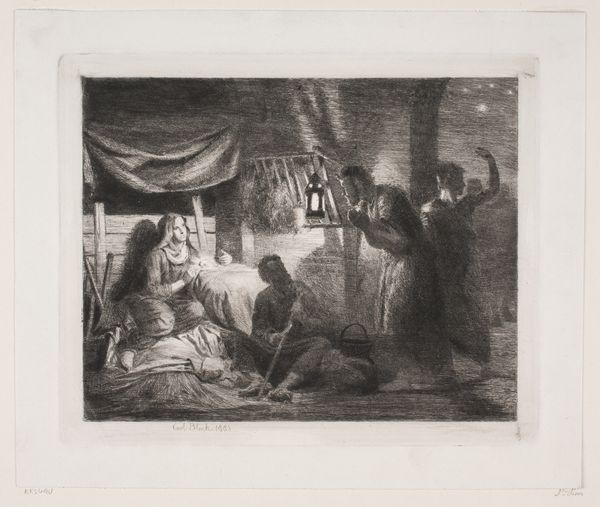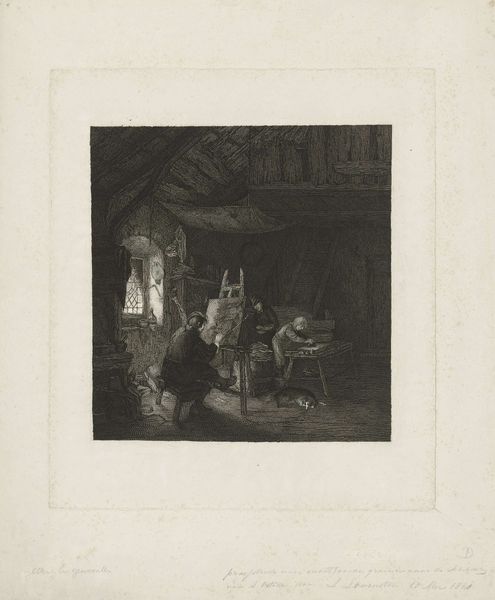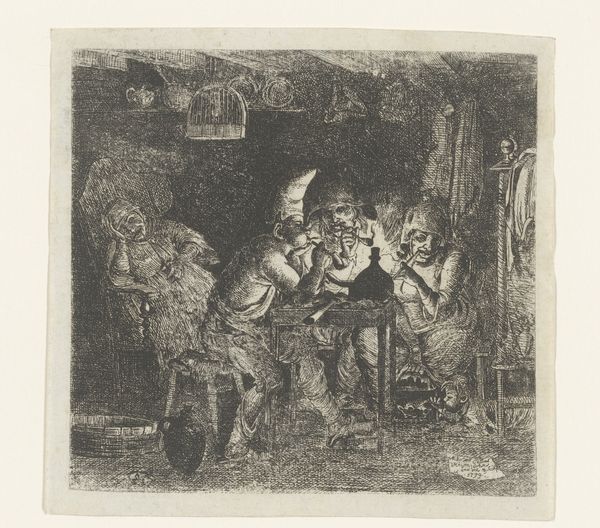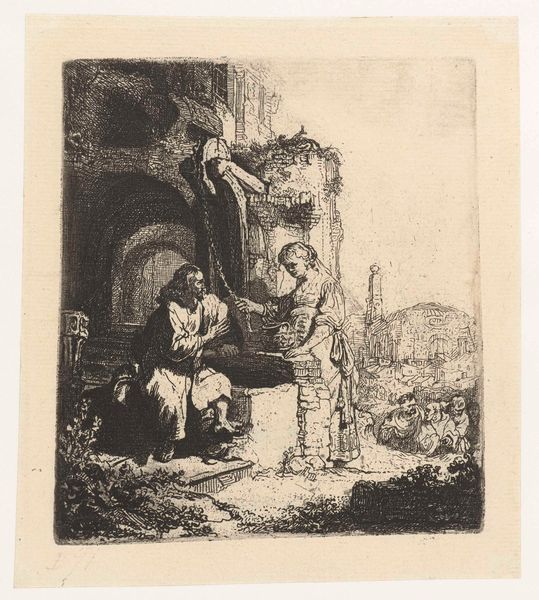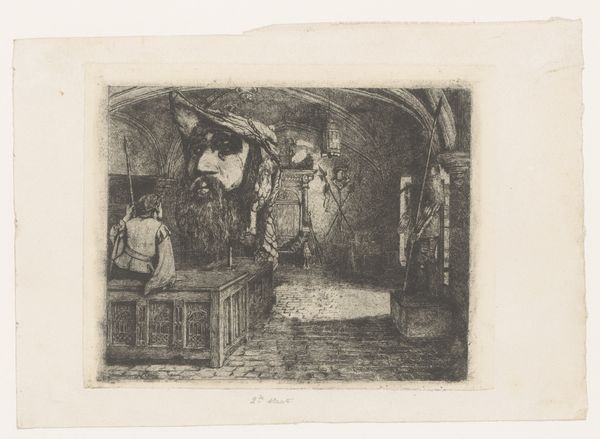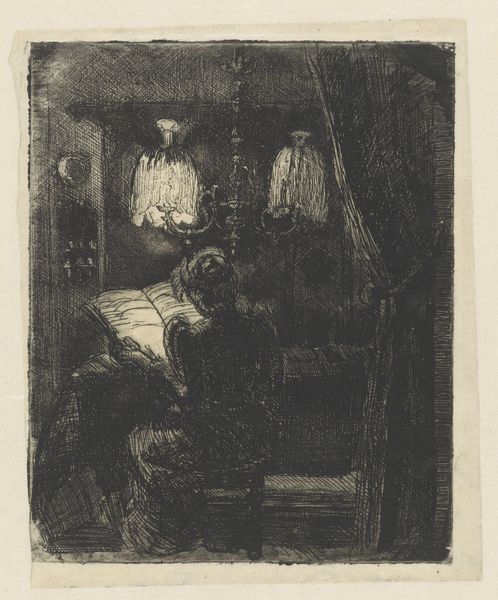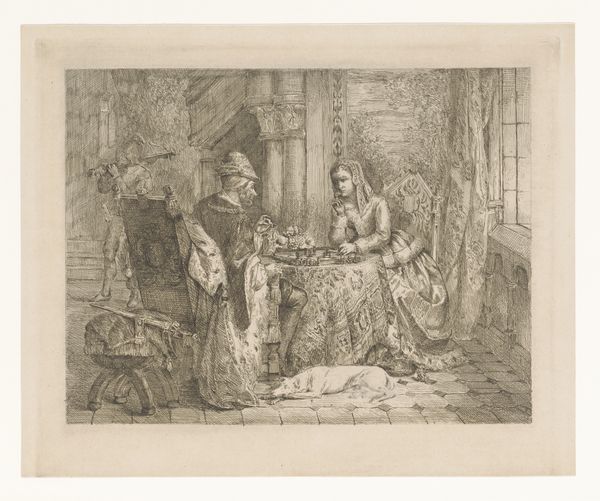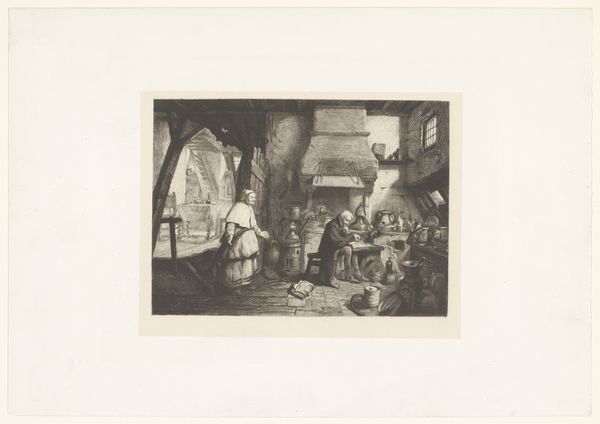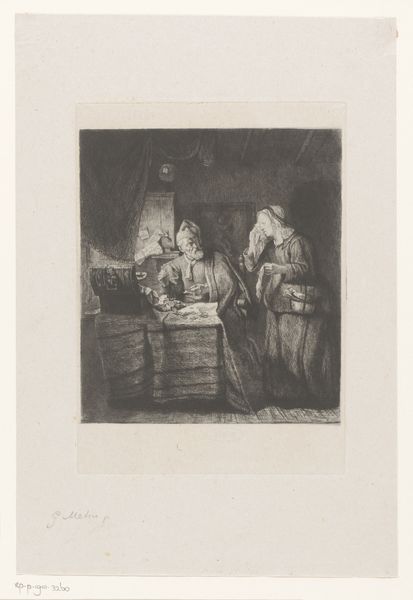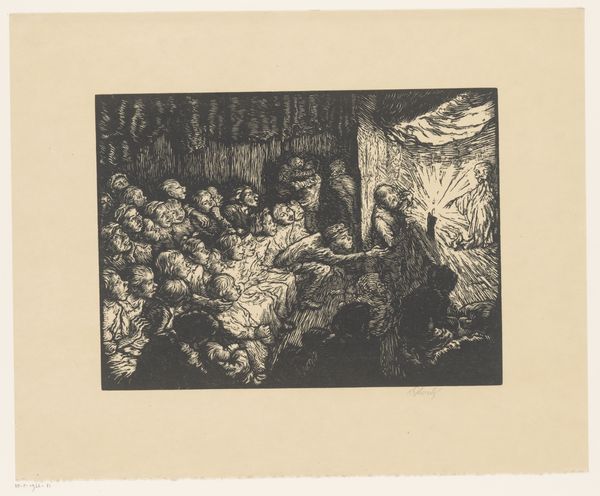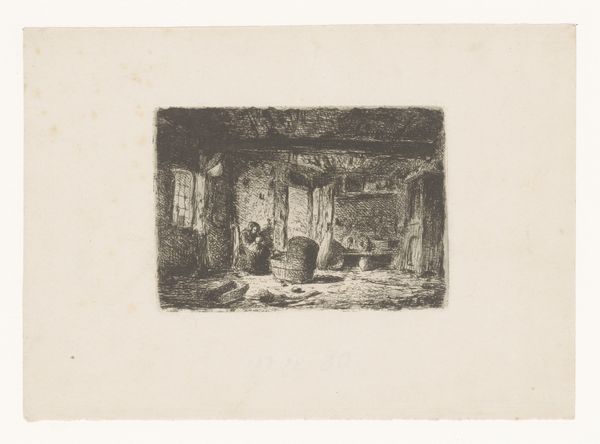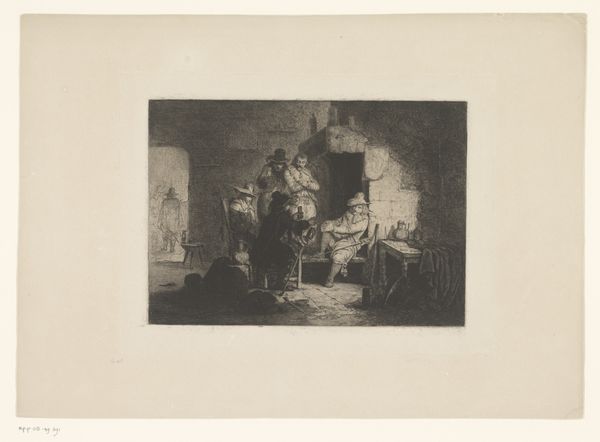
print, etching, engraving
#
medieval
#
narrative-art
# print
#
etching
#
figuration
#
history-painting
#
engraving
#
monochrome
Dimensions: 185 mm (height) x 226 mm (width) (plademaal)
Editor: We're looking at Carl Bloch's "Adoration of the Shepherds" from 1881, an etching with engraving. The stark contrast really makes it feel like a secretive, intimate moment. The figures are so softly rendered, yet the scene feels quite humble, even a little somber. What strikes you about this work? Curator: It’s funny you mention the somber mood; it's easy to fall into that. But look at that star, practically buzzing with celestial joy, and then that lantern held up by one of the shepherds - such tender lighting for such earth-shattering news! Think about what it means for Bloch to return to this well-worn scene. Why choose printmaking instead of paint, to tell such an intimate story? Editor: I guess I hadn’t thought about why *printmaking*. Does the medium itself say something about how he saw the story? Curator: Precisely! An etching allows for a delicacy and detailed precision of line. He builds the shadows layer by layer, a meditative process mirroring the shepherd’s reverence, wouldn't you say? He's crafting something not for cathedrals, but for quiet contemplation, easily disseminated as it can be printed over and over again! What a revolutionary way to depict devotion. Editor: So, almost like bringing the divine down to earth? Curator: Precisely. And look how human the figures are; Mary almost looks like she's dozing off! It's a reminder that faith resides not in grandeur but in the mundane, accessible to all. Editor: Wow, I never thought about it that way. So much more intimate than the massive Renaissance paintings of the same subject I'm used to! Curator: Isn’t it delightful when a familiar story offers a fresh perspective? It makes you wonder about the stories *we* think we know…
Comments
No comments
Be the first to comment and join the conversation on the ultimate creative platform.
